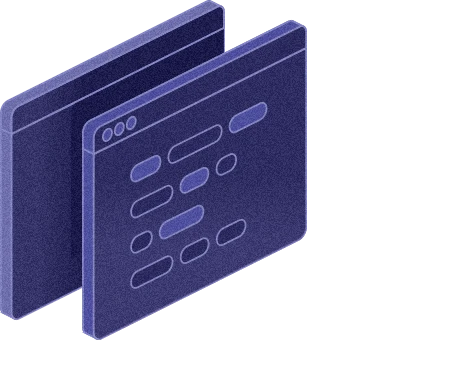









Tech trio all faced
initial challenges
All three companies had already established themselves as leading data solution providers and helped multinational corporations to enhance their data infrastructure before coming to Singapore.
However, after deciding to tap into the Southeast Asian market and set up their regional headquarters in the city state, they all faced challenges. These problems included hiring talent and finding efficient ways to promote their brands and technological capabilities to clients.
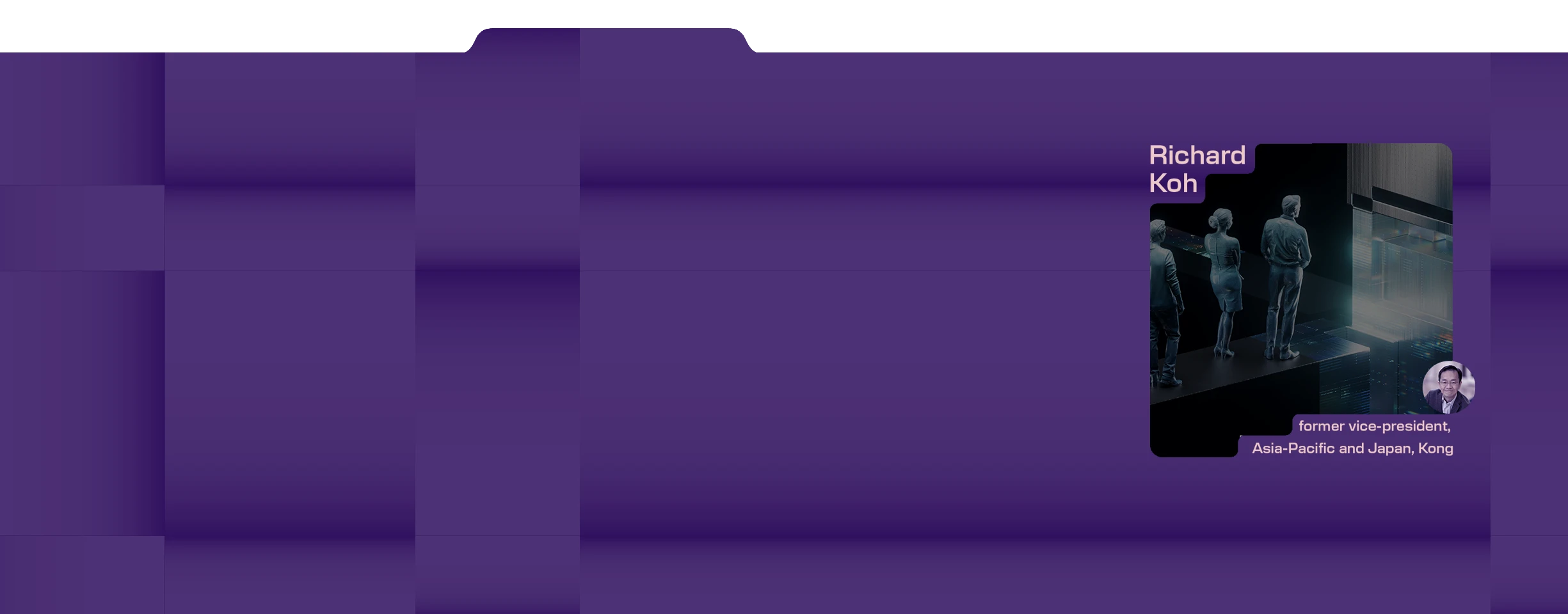

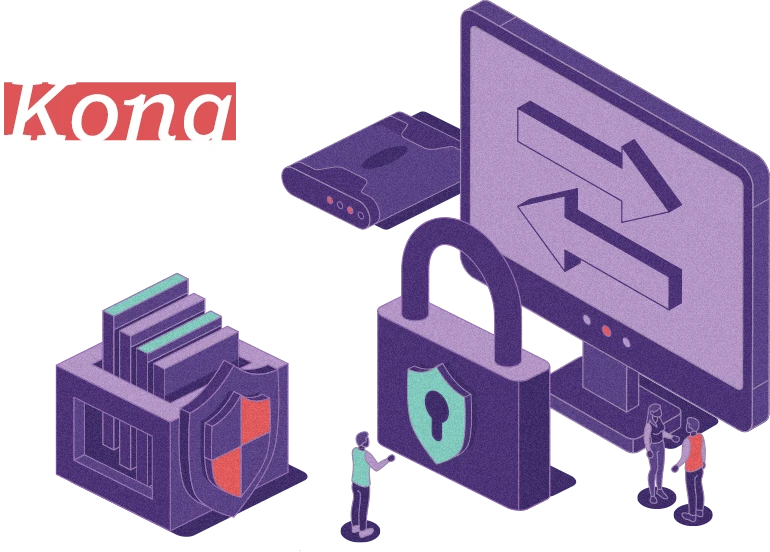

Kong, a leading developer of cloud application programming interface (API) technologies, provides unified cloud API platforms and solutions to help businesses deliver speedy, reliable, efficient and secure digital services.
The company, which is headquartered in San Francisco, California, has worked with hundreds of start-ups and enterprises in a range of industries, including financial services, healthcare and manufacturing.
It set up its office in Singapore in 2023 after experiencing record growth in the city state and Southeast Asia, where digitalisation efforts have increased the demand for its API platform.
“Besides hiring the right people who understand our technology and the market, our main challenges were to navigate the complex procurement processes for enterprises and government entities and to meet the stringent security and compliance requirements in these industries,” Richard Koh, Kong’s former vice-president of Asia-Pacific and Japan, says.
Kong, a leading developer of cloud application programming interface (API) technologies, provides unified cloud API platforms and solutions to help businesses deliver speedy, reliable, efficient and secure digital services.
The company, which is headquartered in San Francisco, California, has worked with hundreds of start-ups and enterprises in a range of industries, including financial services, healthcare and manufacturing.
It set up its office in Singapore in 2023 after experiencing record growth in the city state and Southeast Asia, where digitalisation efforts have increased the demand for its API platform.
“Besides hiring the right people who understand our technology and the market, our main challenges were to navigate the complex procurement processes for enterprises and government entities and to meet the stringent security and compliance requirements in these industries,” Richard Koh, Kong’s former vice-president of Asia-Pacific and Japan, says.
“We had to navigate the complex procurement processes for enterprises and government entities and to meet the stringent security and compliance requirements in these industries”

“We had to navigate the complex procurement processes for enterprises and government entities and to meet the stringent security and compliance requirements in these industries”


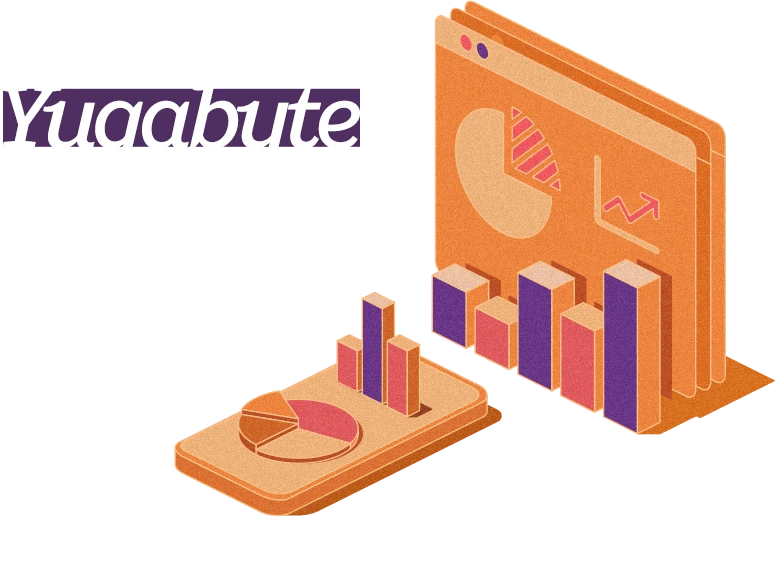

Yugabyte was founded by three former Facebook engineers and has its headquarters in Sunnyvale, California.
It has developed YugabyteDB, an open-source cloud-native database for business applications, which uses a distributed structured query language (SQL) – a standardised programming language for storing and processing information in a database arranged in rows and columns that form a table.
The company has helped many Fortune 500 enterprises to modernise their databases by speeding up new innovations, enhancing customer services and increasing operational efficiencies while ensuring data security and performance reliability.
After entering the Singapore market in 2021, Yugabyte had to work to drive awareness and tell potential customers about why they needed its product in a crowded database market.
“The main challenges revolve around educating potential customers about our technology’s distributed SQL architecture and its value,” Vish Phaneendra, Yugabyte’s vice-president of Asia-Pacific and Japan, says. “We had to earn the trust of customers through taking on smaller projects before being able to take on more critical workloads.”
Yugabyte was founded by three former Facebook engineers and has its headquarters in Sunnyvale, California.
It has developed YugabyteDB, an open-source cloud-native database for business applications, which uses a distributed structured query language (SQL) – a standardised programming language for storing and processing information in a database arranged in rows and columns that form a table.
The company has helped many Fortune 500 enterprises to modernise their databases by speeding up new innovations, enhancing customer services and increasing operational efficiencies while ensuring data security and performance reliability.
After entering the Singapore market in 2021, Yugabyte had to work to drive awareness and tell potential customers about why they needed its product in a crowded database market.
“The main challenges revolve around educating potential customers about our technology’s distributed SQL architecture and its value,” Vish Phaneendra, Yugabyte’s vice-president of Asia-Pacific and Japan, says. “We had to earn the trust of customers through taking on smaller projects before being able to take on more critical workloads.”
“The main challenges revolve around educating potential customers about our technology’s distributed SQL architecture and its value ... and earning their trust”

“The main challenges revolve around educating potential customers about our technology’s distributed SQL architecture and its value ... and earning their trust”


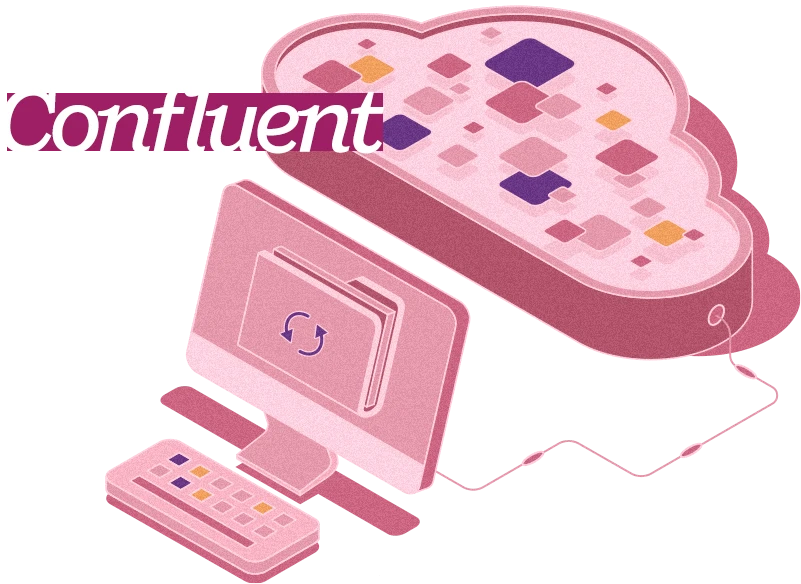

Confluent, which is based in Mountain View, in California’s Silicon Valley, offers a cloud-native, real-time data streaming platform which businesses can use to continuously stream, process and govern their data.
It has helped clients such as the travel company Expedia Group, US bank Citigroup and the Singapore Exchange to deliver digital front-end customer services and transition to sophisticated, real-time, software-driven back-end operations.
The company set up its Singapore office in 2018 to tap into the potential of the Southeast Asian market. “We needed to evangelise the value of the data streaming platform as the central nervous system for enterprises and the public sector,” Suvig Sharma, Confluent’s regional head of Asia, says.
“Since we had limited manpower in the initial days, strategic partners like IMDA provided us with the reach and scale in a credible manner.”
Confluent, which is based in Mountain View, in California’s Silicon Valley, offers a cloud-native, real-time data streaming platform which businesses can use to continuously stream, process and govern their data.
It has helped clients such as the travel company Expedia Group, US bank Citigroup and the Singapore Exchange to deliver digital front-end customer services and transition to sophisticated, real-time, software-driven back-end operations.
The company set up its Singapore office in 2018 to tap into the potential of the Southeast Asian market. “We needed to evangelise the value of the data streaming platform as the central nervous system for enterprises and the public sector,” Suvig Sharma, Confluent’s regional head of Asia, says.
“Since we had limited manpower in the initial days, strategic partners like IMDA provided us with the reach and scale in a credible manner.”
“We needed to evangelise the value of the data streaming platform as the central nervous system for enterprises and the public sector”

“We needed to evangelise the value of the data streaming platform as the central nervous system for enterprises and the public sector”



IMDA Accreditation
involves rigorous
evaluation process
Singapore’s IMDA Accreditation Programme aims to attract and build credibility for elite, high-growth business-to-business tech companies in artificial intelligence (AI) – computer systems that can copy intelligent human behaviour – cybersecurity, digital trust and enterprise platforms, which will drive digital transformation in key sectors.
Each year, IMDA reviews 1,500 to 2,000 applications for the accreditation, but only 30 to 40 companies will be successful. Businesses are assessed based on their technical, financial and operational strengths and the process generally takes between three to six months.


1,500
2,000
to
The number of companies that apply
for an IMDA accreditation each year
3040
to
The number of companies that
receive the IMDA accreditation
each year
Application
and evaluation
A company which would like to be accredited must first go through an initial assessment to see if it meets the pre-qualification criteria. Once confirmed, it must submit an application form to IMDA with supporting documents, including audited financial statements, profiles of its key management personnel, product specifications and business plans.
Firms which meet the qualification requirements will then be further evaluated on their management and financial capabilities, and their ability to show a clear demand for
their products.
Technical,
financial and operational
due diligence
Shortlisted companies will be further evaluated based on three areas: financial (business scalability and sustainability), operations (leadership, management, and service delivery and support) and technical (functionality, reliability, performance, portability, compatibility, security, usability and maintainability assessments).
Final evaluation
and decision
Companies may receive a full award based on the final evaluation. The accreditation status is valid for 18 months.
The programme accelerates market access by connecting accredited companies to government and enterprise demand and facilitates scaling by supporting procurement, proof-of-concept (POC) acceleration, and funding access. IMDA accreditation provides government-endorsed validation that enhances trust and adoption, providing a significant boost to their credibility.
Additionally, the Tech Acceleration Lab (TAL) provides a secure POC environment for government and enterprise adoption, reducing deployment time significantly. It has supported over 100 start-ups and more than 130 POCs, with a 40 per cent conversion rate for enterprises and 50 per cent for
government agencies.
Overall, the programme has helped generate over S$1 billion (about US$777 million) in revenue and S$1.2 billion in new growth capital, resulting in 26 successful exits via mergers and acquisitions and initial public offerings.

Additionally, the Tech Acceleration Lab (TAL) provides a secure POC environment for government and enterprise adoption, reducing deployment time significantly. It has supported over 100 start-ups and more than 130 POCs, with a 40 per cent conversion rate for enterprises and 50 per cent for
government agencies.
Overall, the programme has helped generate over S$1 billion (about US$777 million) in revenue and S$1.2 billion in new growth capital, resulting in 26 successful exits via mergers and acquisitions and initial public offerings.
100
130
start-ups
and
POCs
The number of successful use
cases supported by the TAL


40
50
enterprises
and
government agencies
%
%
The conversion rate for companies that have
used the TAL to showcase their capabilities to
potential customers
The conversion rate for companies that have used the TAL to showcase their capabilities to potential customers
S$1.2
billion
Over
The total value in new growth
capital generated by IMDA
accredited companies
The total value in new growth capital
generated by IMDA accredited companies




IMDA Accreditation
offers range of benefits
Since becoming IMDA-accredited, Kong, Yugabyte and Confluent have enjoyed lasting success in Singapore. They credit the programme for boosting their credibility and fast-tracking long procurement processes.
They have also leveraged IMDA’s network to showcase their technological capabilities to key decision makers within prospective government and enterprise clients’ organisations.


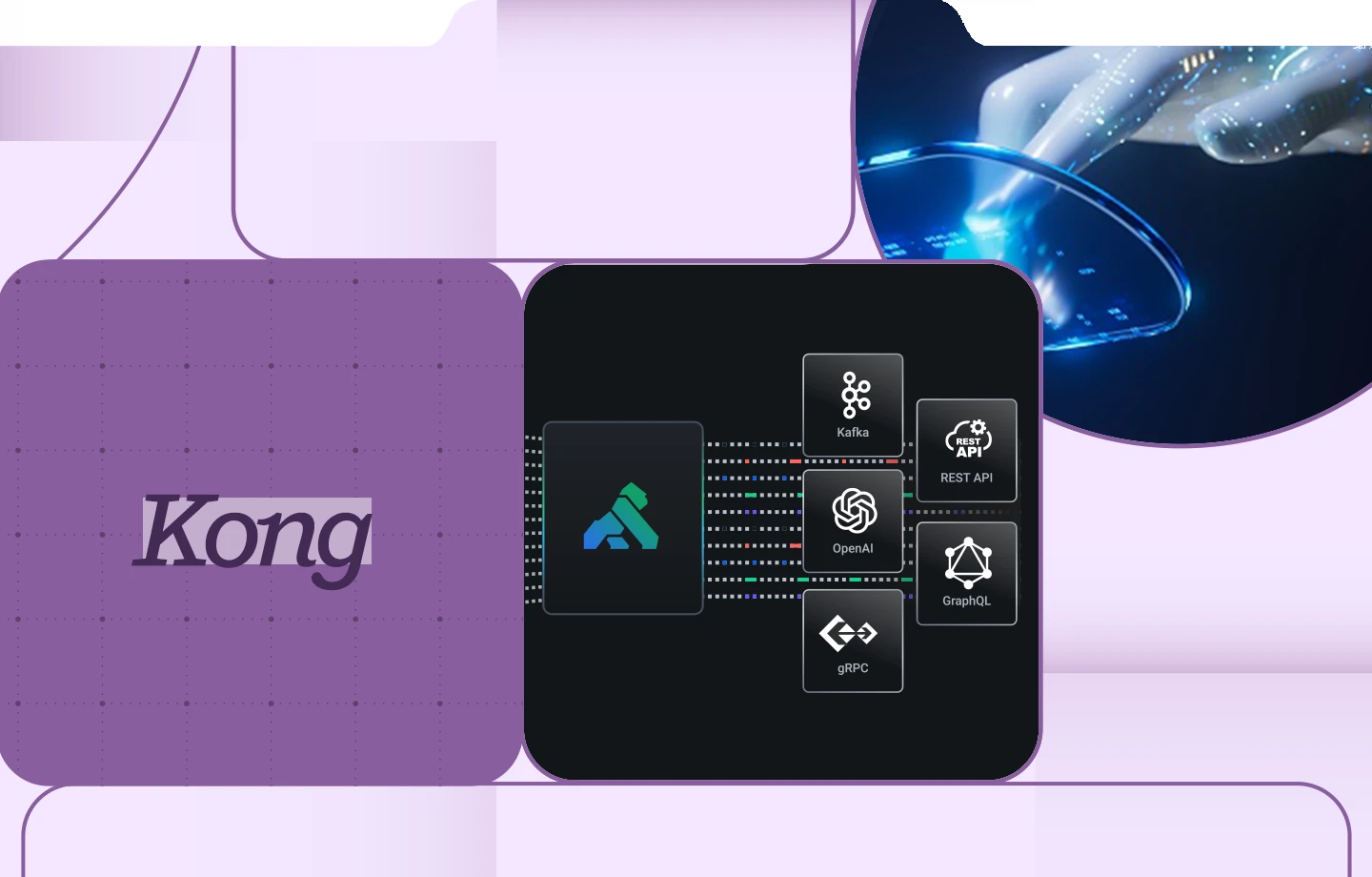
Since it received IMDA accreditation last January, Kong has built more visibility and credibility with potential customers and partners, and broadened and accelerated its public sector engagements. Its team in Singapore has also grown significantly since then.
“The accreditation helps establish Kong as a trusted partner for government agencies and enterprises,” Koh says. “IMDA’s various outreach platforms also help us to get in touch with key decision makers in different organisations and to build awareness of our solutions in the market.”
Since it received IMDA accreditation last January, Kong has built more visibility and credibility with potential customers and partners, and broadened and accelerated its public sector engagements. Its team in Singapore has also grown significantly since then.
“The accreditation helps establish Kong as a trusted partner for government agencies and enterprises,” Koh says. “IMDA’s various outreach platforms also help us to get in touch with key decision makers in different organisations and to build awareness of our solutions in the market.”

One successful example of the use of its offering is GCash, a popular mobile wallet and fintech platform in the Philippines. Since switching to Kong’s platform, it has achieved annual savings of about US$800,000 in infrastructure costs and expanded its user base from 60 million to more than 90 million within two years.
In key markets where there is a strong demand for Kong’s products, such as Indonesia, Thailand and the Philippines, the company plans to hire more resources.
It will also invest in the research and development of emerging technologies such as generative AI – computer systems that can not only copy intelligent human behaviour but also produce new content, especially text or images – to support evolving customer needs.
One successful example of the use of its offering is GCash, a popular mobile wallet and fintech platform in the Philippines. Since switching to Kong’s platform, it has achieved annual savings of about US$800,000 in infrastructure costs and expanded its user base from 60 million to more than 90 million within two years.
In key markets where there is a strong demand for Kong’s products, such as Indonesia, Thailand and the Philippines, the company plans to hire more resources.
It will also invest in the research and development of emerging technologies such as generative AI – computer systems that can not only copy intelligent human behaviour but also produce new content, especially text or images – to support evolving customer needs.


“The accreditation helps establish Kong as a trusted partner for government agencies and enterprises. IMDA’s various outreach platforms also help us to get in touch with key decision makers in different organisations and to build awareness of our solutions”



The company says there is greater public belief in its products since becoming IMDA-accredited in 2022. It has also led to improved access to government and business customers
in Singapore.
It has also attended many IMDA-organised industry events, where it was able to introduce its technology to potential customers and partners.
The company says there is greater public belief in its products since becoming IMDA-accredited in 2022. It has also led to improved access to government and business customers in Singapore.
It has also attended many IMDA-organised industry events, where it was able to introduce its technology to potential customers and partners.

“The Tech Acceleration Lab, which provides us with a safe and secure sandbox [computer system test area] environment to showcase our technology to prospects, has helped us secure deals with government agencies and enterprises in telecommunications and financial services,” Phaneendra says.
A Singaporean telecoms company, for example, has switched to the YugabyteDB system and can now easily scale up its capacity to meet the demands of high-traffic events such as a new iPhone release. This has provided customers with a much smoother ordering experience.
Yugabyte now plans to solidify its presence in Singapore and expand across the region by building a partner ecosystem with cloud service providers and independent software vendors.
“The Tech Acceleration Lab, which provides us with a safe and secure sandbox [computer system test area] environment to showcase our technology to prospects, has helped us secure deals with government agencies and enterprises in telecommunications and financial services,” Phaneendra says.
A Singaporean telecoms company, for example, has switched to the YugabyteDB system and can now easily scale up its capacity to meet the demands of high-traffic events such as a new iPhone release. This has provided customers with a much smoother ordering experience.
Yugabyte now plans to solidify its presence in Singapore and expand across the region by building a partner ecosystem with cloud service providers and independent software vendors.


“The Tech Acceleration Lab, which provides us with a safe and secure sandbox environment to showcase our technology to prospects, has helped us secure deals with government agencies and enterprises in telecommunications and financial services”



The company, which received its IMDA accreditation in 2023, says the programme has led to greater public belief in its platform and made negotiations easier with potential government partners and business customers.
“The accreditation puts to rest a number of questions that potential customers may have,” Sharma says. “We have also used IMDA’s Tech Acceleration Lab to test or build applications in a sandbox environment on the GCC [Singapore’s Government on Commercial Cloud – a platform that facilitates secure and efficient adoption of commercial cloud services] and showcase our capabilities to government agencies. That’s a great way for us to evangelise the value that we can bring.”
The company, which received its IMDA accreditation in 2023, says the programme has led to greater public belief in its platform and made negotiations easier with potential government partners and business customers.
“The accreditation puts to rest a number of questions that potential customers may have,” Sharma says. “We have also used IMDA’s Tech Acceleration Lab to test or build applications in a sandbox environment on the GCC [Singapore’s Government on Commercial Cloud – a platform that facilitates secure and efficient adoption of commercial cloud services] and showcase our capabilities to government agencies. That’s a great way for us to evangelise the value that we can bring.”

Confluent has worked with a number of government agencies to help modernise their legacy data infrastructures and improve data efficiency.
In one example, the company helped an agency to develop scalable, fault-tolerant and real-time data pipelines, which enabled it to produce mobile apps that can process people’s requests in real time.
One of Singapore’s leading digital banks, Trust Bank, has adopted Confluent’s data streaming solution as its “central nervous system”, which has allowed it to connect all its microservices on a scalable, resilient platform to serve
its customers.
Confluent’s success in Singapore has enabled it to expand across Asia, with the company now having a local presence in Indonesia, Malaysia, Thailand, Philippines, Hong Kong, South Korea, Japan and India.
Confluent has worked with a number of government agencies to help modernise their legacy data infrastructures and improve data efficiency.
In one example, the company helped an agency to develop scalable, fault-tolerant and real-time data pipelines, which enabled it to produce mobile apps that can process people’s requests in real time.
One of Singapore’s leading digital banks, Trust Bank, has adopted Confluent’s data streaming solution as its “central nervous system”, which has allowed it to connect all its microservices on a scalable, resilient platform to serve
its customers.
Confluent’s success in Singapore has enabled it to expand across Asia, with the company now having a local presence in Indonesia, Malaysia, Thailand, Philippines, Hong Kong, South Korea, Japan and India.
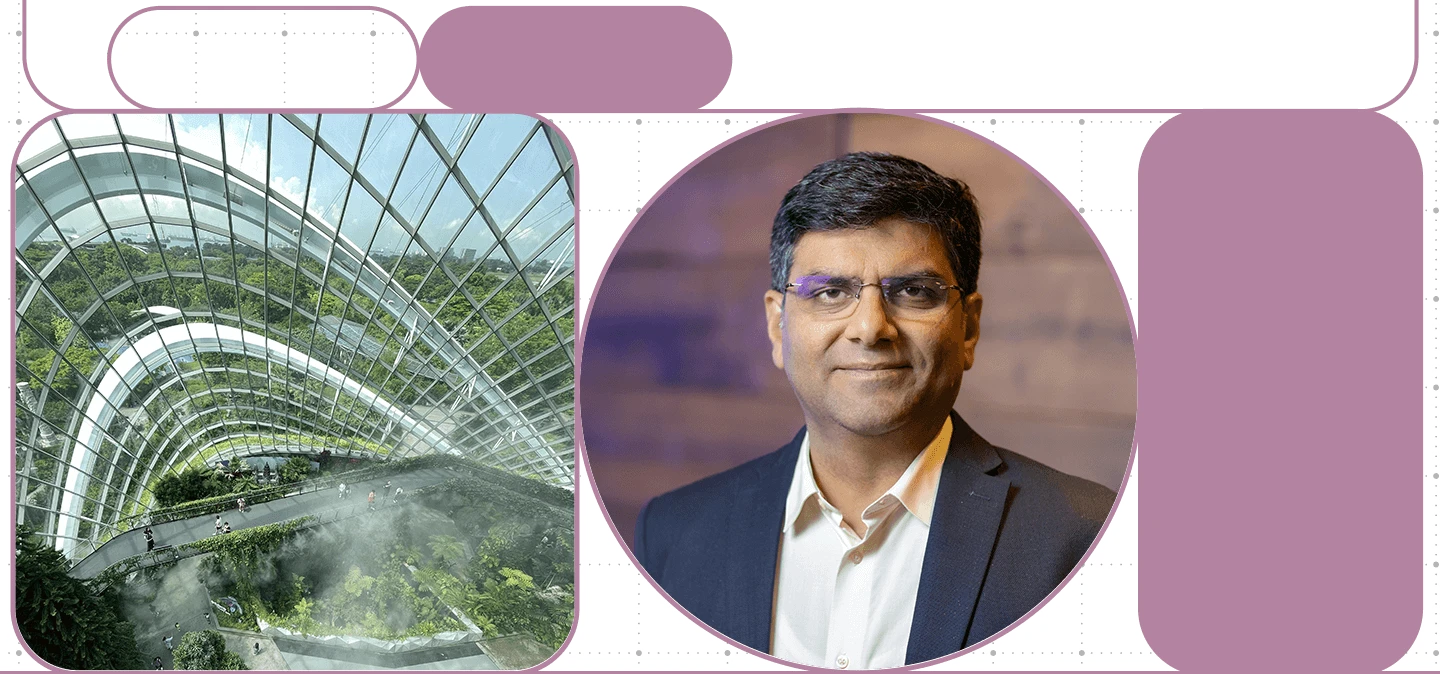

“The accreditation puts to rest a number of questions that potential customers may have. We use IMDA’s Tech Acceleration Lab to test or build applications and showcase our capabilities”
Learn more about the IMDA Accreditation programme at
www.imda.gov.sg/how-we-can-help/imda-accreditation
Story created by Morning Studio
EditorDominic Ngai
Sub-editorGuy Haydon


please rotate your mobile device,
or adjust the browser size of your computer or tablet.










